
We are All Human: Building a Peaceful World with Coffee
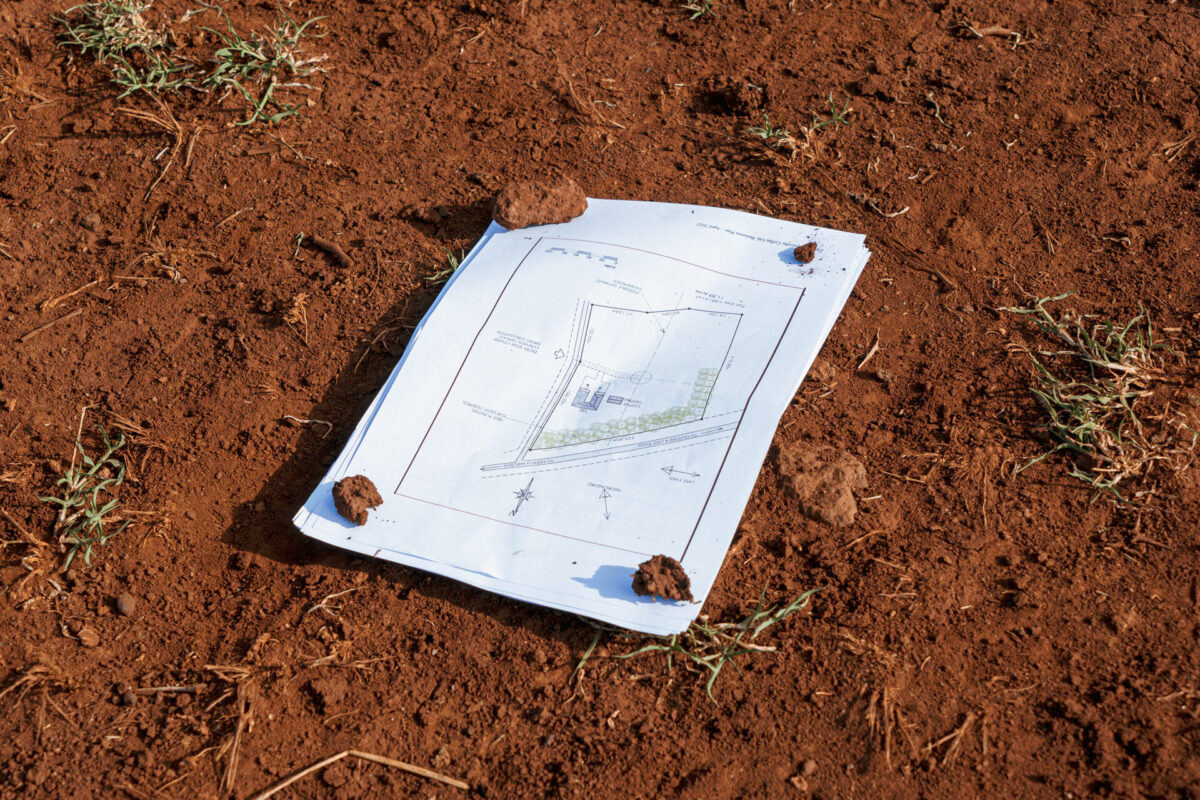
At the Acacia Hills Coffee Estate, plans are in place for the construction of a new dry mill in the district of Karatu, Northern Tanzania. If the plan goes through, it will be music to the ears for local smallholders. A closer mill would not only mean savings on delivery times and costs for parchment coffee processing, it could reduce the risk of degradation, giving the potential for a better quality bean and a higher revenue. It would also help improve the reputation of Acacia Hills coffee, and Tanzanian coffee in general.
Up for the project manager position of this promising endeavor is Q Grader Filbert Mmari. Filbert spent around four to five years working for a coffee exporter (Mawenzi coffee/Tutunze Kahawa Ltd ) before taking a job at Rafiki Coffee Mill, a subsidiary of Volcafe, where for eight years he was responsible for forging relationships with coffee farmers and quality control. Then in 2022, recognizing his unique skills and expertise, Filbert was snapped up by the head of Acacia Hills, where he is currently trying to build a better world through coffee.
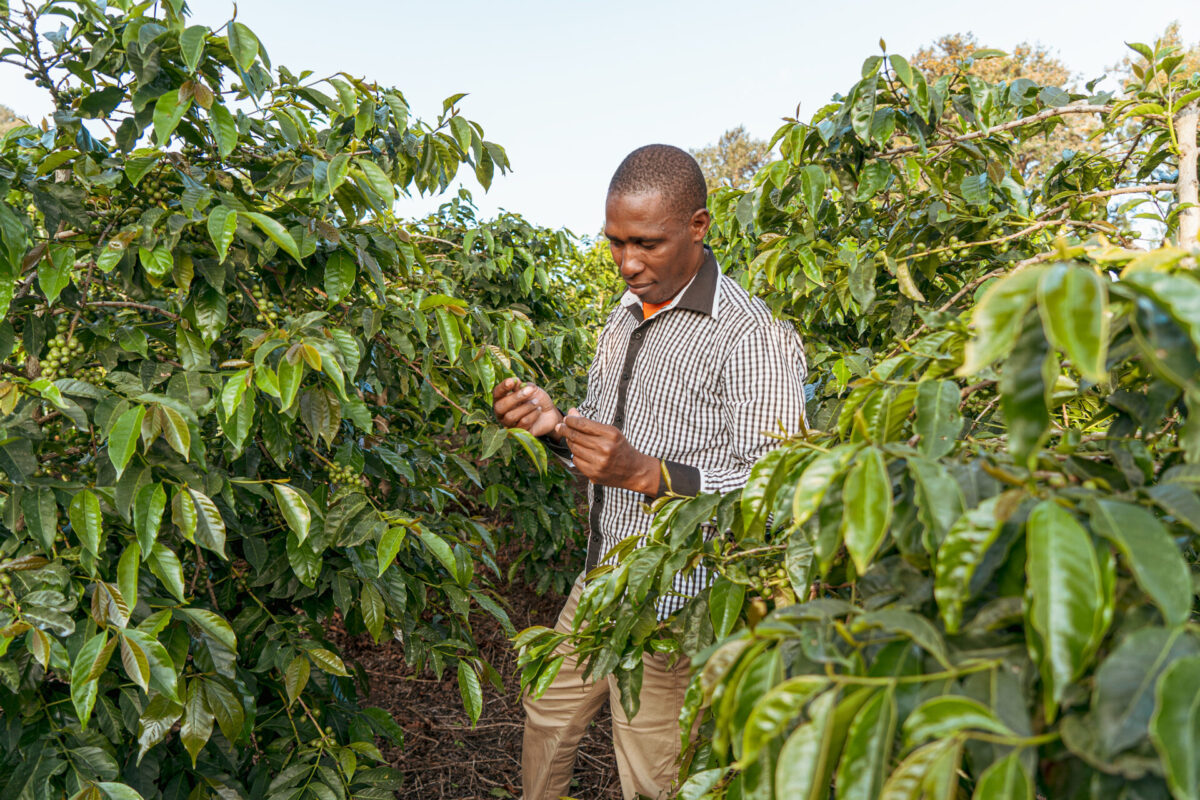
Destined to meet
In January 2022, eight years after joining the company, Filbert decided to part ways with Rafiki Coffee and take some time off to rest his body and spirit.
Most people, when they leave a company, lose the connections they made with customers and clients. But Filbert is not most people. The coffee farmers never thought of him as an employee of Rafiki Coffee, but simply as Filbert, someone they could trust and rely on. After he left, many of the coffee farmers told him how disappointed they were, and how much they depended on his support and advice. It was clear that the farmers appreciated Filbert for who he was, not because of who he worked for.
So Filbert began volunteering his time to help the farmers. He would visit the farms, listen to their concerns, and give advice where he could.
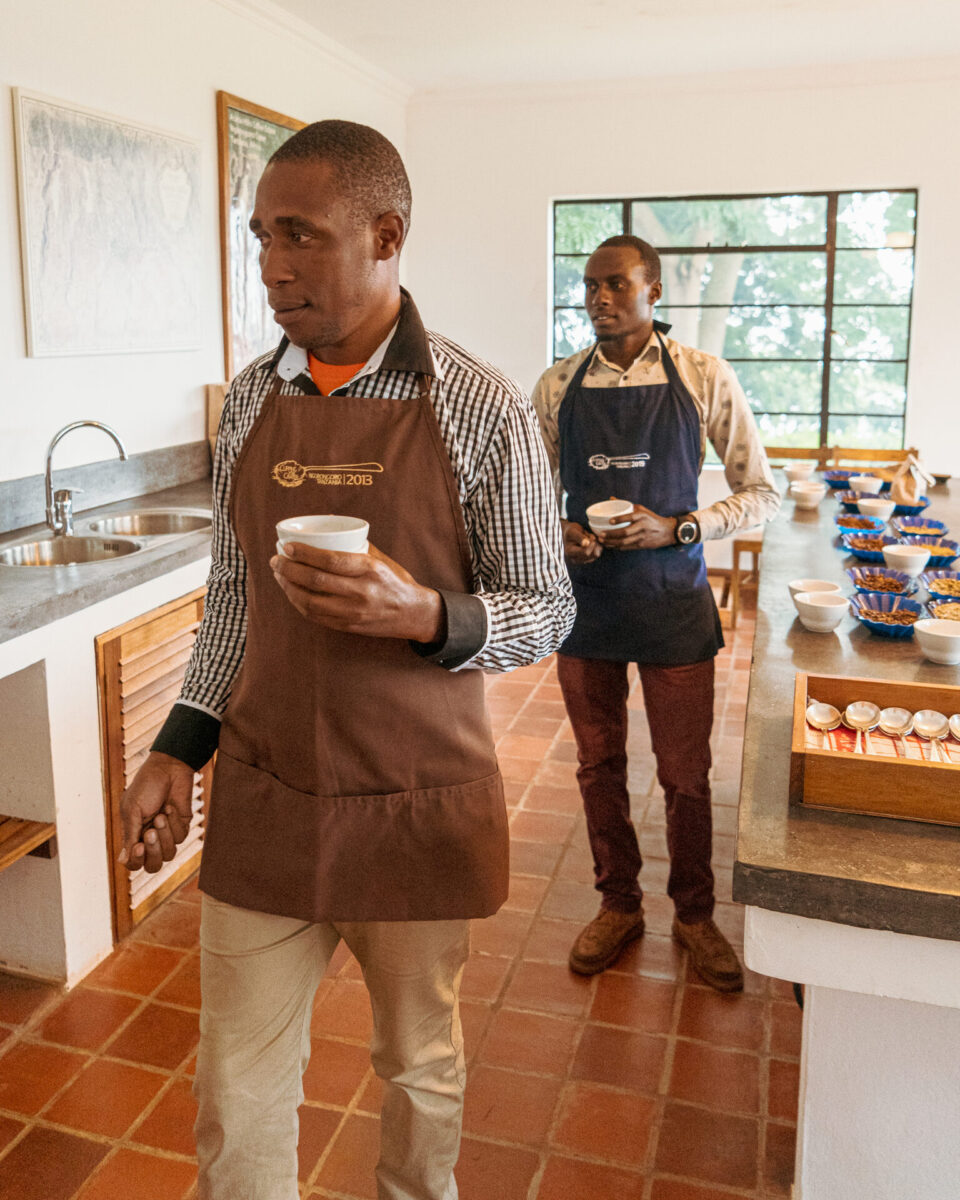
One day, Jovin, the QC manager at Acacia Hills, approached Filbert. “The owner, Leon, wants to chat. Can you send over your resume?”
And things just snowballed from there. Filbert sent in his resume that same afternoon, and the next day had an email from Leon. “Filbert, you’re just the person I’ve been looking for. When can you start?”
Leon had been looking for someone who could take charge and lead the dry mill project. Filbert not only had the technical expertise, but the relationships he had built up with the local coffee farmers meant that he would be the perfect fit. And for Filbert too, it was like a dream come true. “This project is a great idea. Leave it to me, I’ll make it happen,” said Filbert, accepting the challenge. But his first thoughts were not for himself, they were for the coffee farmers.
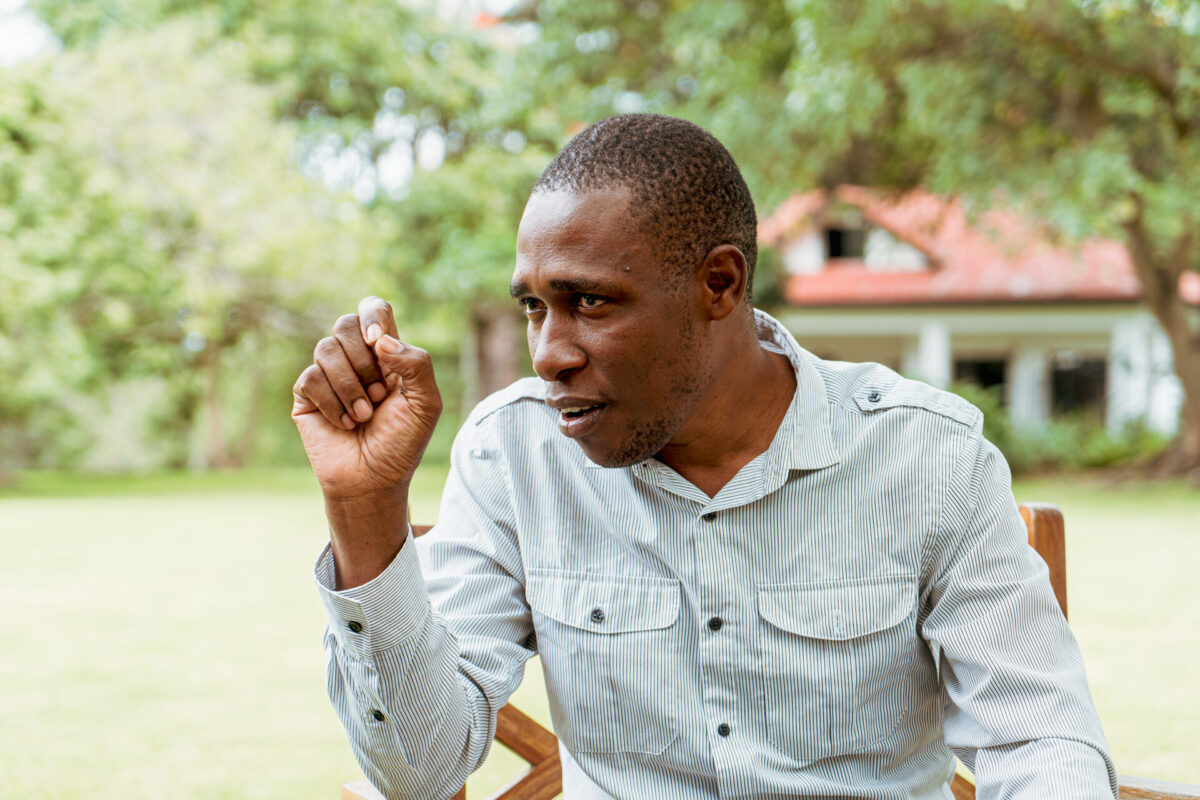
“From my conversations with the coffee farmers, I knew that transporting the parchment coffee to Moshi from their farms in Acacia or Karatu was a huge concern. It took on average 16 hours to get to the dry mill. There was a closer mill, but the quality was nowhere near and in the long-run, sacrificing quality just would not be worth it. But with a mill in Karatu, the farmers could reduce the travel time and still have a high-quality product at the end. Ultimately, it would mean they could earn more for their coffee.”

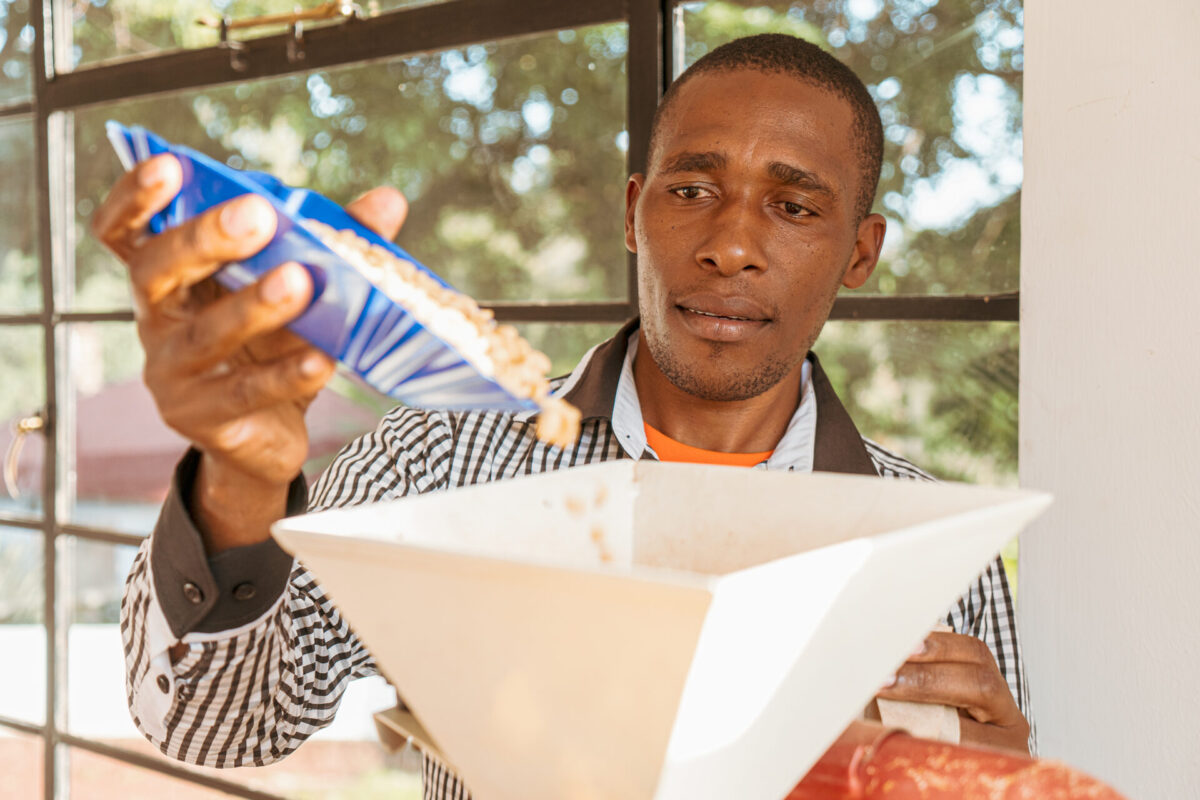
A reputation is earned not created
When he was at Rafiki Coffee, it wasn’t only small farmers that Filbert made a great impression on. Overseas importers and coffee estate owners from Karatu would often come over and thank him with a warm handshake for a job well done. After the parchment coffee had been delivered to the mill and while waiting for it to be processed, Filbert would get on with the evaluation of the green bean sample and send the results to the farmers via WhatsApp or email. The key to ensuring consistent quality, says Filbert, is an established workflow.
“If I find a fault with a bean, or notice a coffee defect at the cupping stage, then I get in touch with the farmers directly. I speak to them in Chaga or Swahili and give them advice. The farmers like how I tell them it straight, so they know exactly what has happened and what to do about it. I think they also appreciate the fact that I’m available after hours and putting in the extra time to help. It’s strengthened the relationship.”
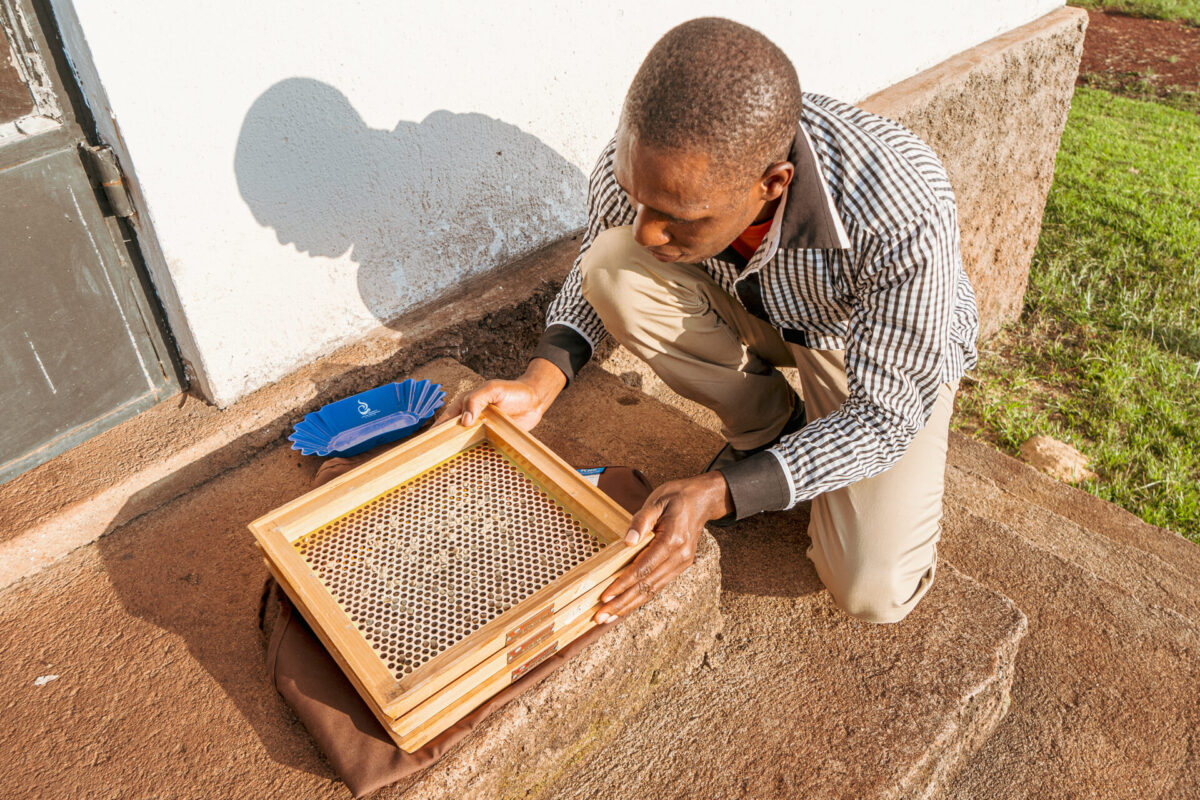
Smallholders sometimes sell their green beans to big corporations. When this happens, they need to sign a sales contract, which can be unfamiliar territory for many farmers. Sometimes, buyers take advantage of this lack of knowledge and draw up contracts that put the farmer at a disadvantage.
This is where Filbert steps in. “Leave it to me. Give me two days.” He explains to the farmers more clearly about the terms of the sales contract; and if they agree, then he continues with another step. Filbert gets the relevant documents from the Tanzanian Coffee Board (i.e. export permits), scans them and then shares them with the export company and buyer. He then passes a copy to the farmer, telling them to keep it on file. Filbert always goes above and beyond, and it’s one of the reasons why he has so much support from the smallholders.
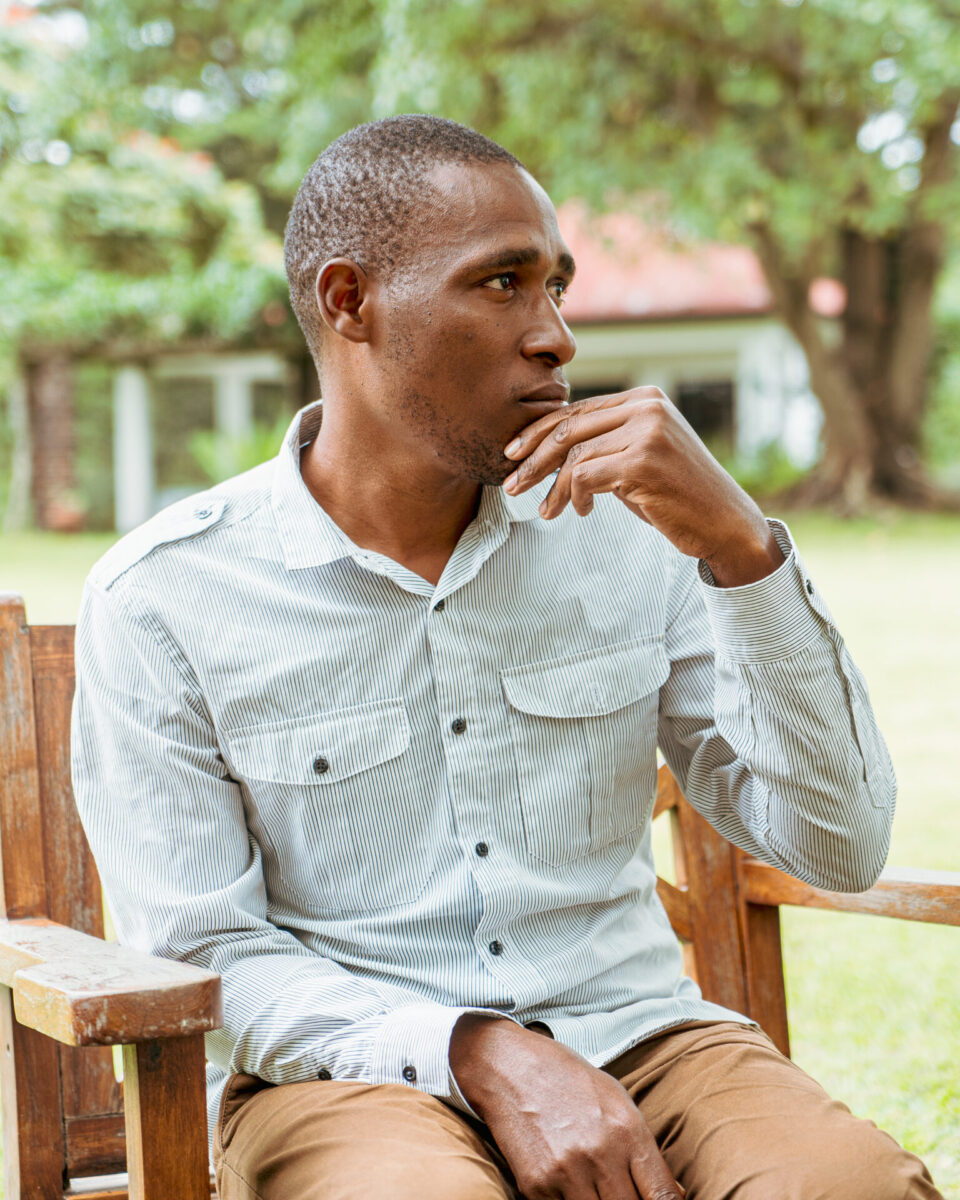
Filbert shares an experience which has left a lasting impression on him. In 2011, 31 year old Filbert was working for Ecom Trading under the umbrella of Tutunze Kahawa Ltd., when he was sent to work in Ruvuma, South Tanzania, for three months. He was given 5000 shillings to cover his food expenses. In Tanzania, an average restaurant meal is around 1500 shillings. The company’s response? “Keep the change.”
But when Filbert got to the coffee farms in Ruvuma, he was in for an even bigger shock. He knew about the economic divide in his home country, separating the tourist-rich north from the south. However, the level of poverty he experienced was far beyond what he had imagined.
When he went to the farms, the family would greet him on bended knee, as if he were a king. At first he couldn’t understand why they behaved that way, or how he should behave. But soon he began to realize that there, he was considered a rich man. It was something he had never experienced before. When he realized what was happening he began giving his money away to the children of the village. Later, the mothers found out about his generosity, and performed a special ceremonial dance in his honor, to thank him for his kindness.
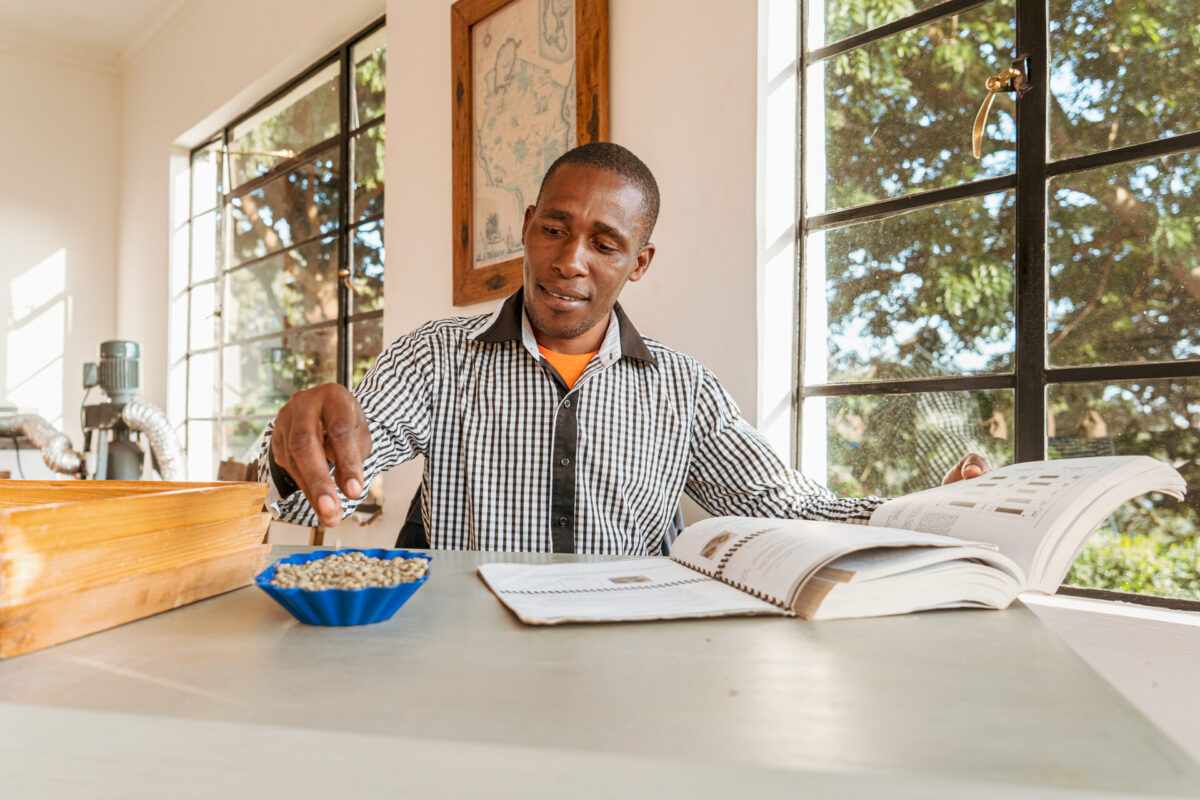
By any standard, Filbert’s generosity was an act of selfless kindness. But he thinks otherwise.
“It was hard for me to understand what was happening, so it’s difficult to explain. You can think whatever you want about my actions, but for me, it was just a case of doing the right thing. For a Christian like me, doing the right thing is what makes life worth living.”
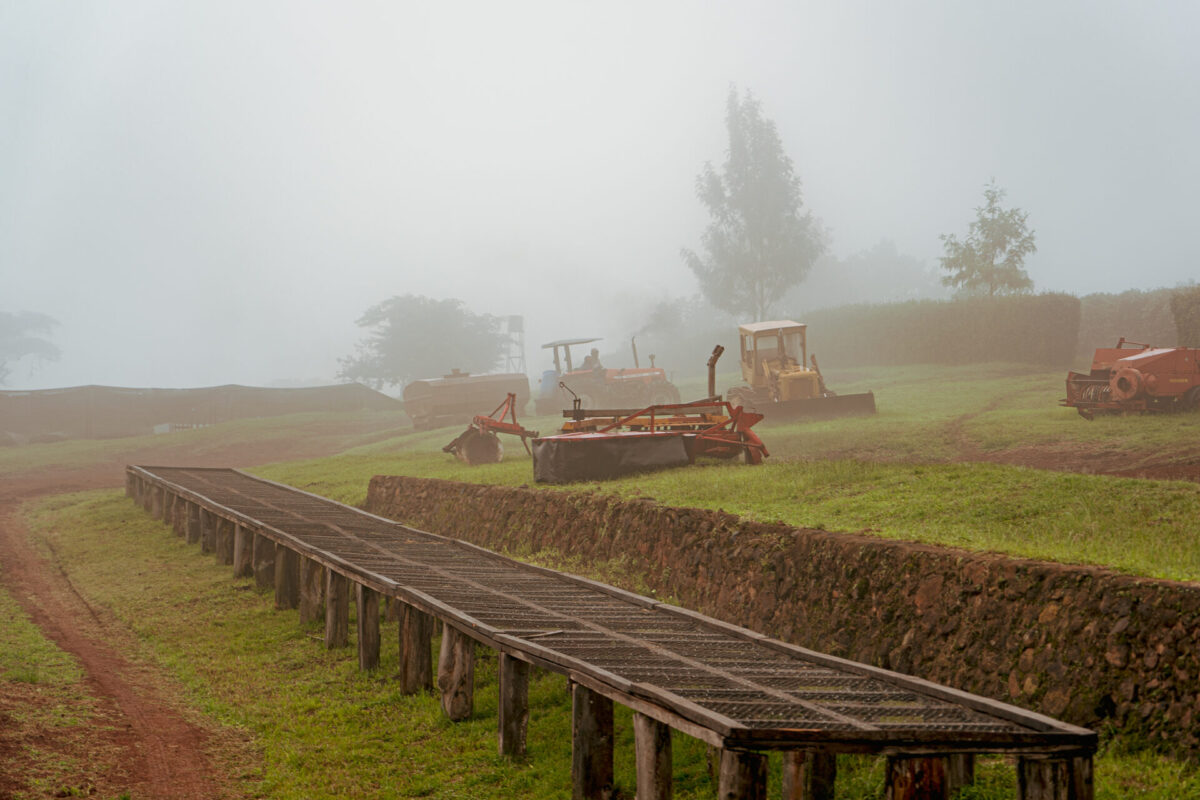
Lessons in life from coffee
Born and raised in the town of Moshi in Northern Tanzania, Filbert was only 11 when he lost his mother. At the time, his father was living apart from the family to work in the coastal city of Dar es Salaam, so Filbert went to live with his grandparents. With support from the local church, Filbert graduated Form 4 (Junior High School), and in 2003, started going to a vocational center to study electronics. Then in 2007, he went on to Tanzania Teachers’ College Grade A.
After completing his studies, he joined his father and began working on the cash register at his father’s bar. However, having been raised as a devout Christian by his grandparents, Filbert was uncomfortable with the idea of serving alcohol as a career, and decided to return to Moshi to think about what it was he wanted to do.
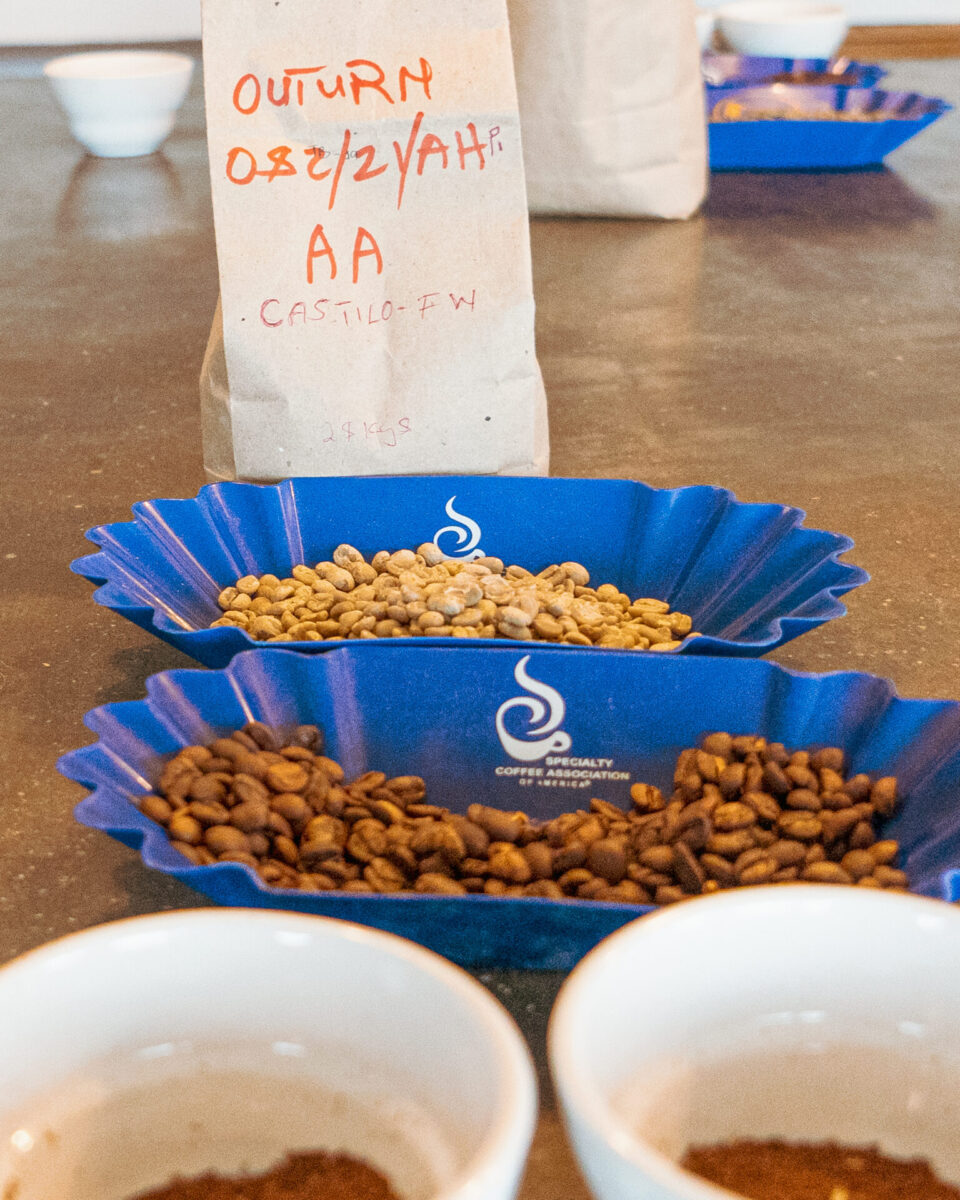
It was then that his uncle, working in quality control at the Tanzanian Coffee Board (TCB), introduced him to the world of coffee. “I’ve decided to retire, Filbert. How about you take over for me?” His uncle’s retirement gave Filbert the opportunity to join TCB as an office attendant, quality controller, and coffee marketing trainer, and he took it. So in 2008, Filbert began working at TCB, initially as an intern. Nine other interns joined the program but, feeling that the pay was not equal to the work, some dropped out before the program finished.
But not Filbert. Despite the low salary, Filbert persisted, budgeting his income to try and make ends meet. Many people told him he was wasting his time, but he decided to stick with it.
Then one day, a new door opened up for Filbert in the shape of Christiani, the owner of Mawenzi Coffee Export. Filbert had obtained the Star Cupper rating while taking part in the cupping skills program run by the Specialty Coffee Association of America in Nairobi, Kenya (a program set up to improve the quality and price of coffee in the market), when he was approached by Christiania to come and work with them.
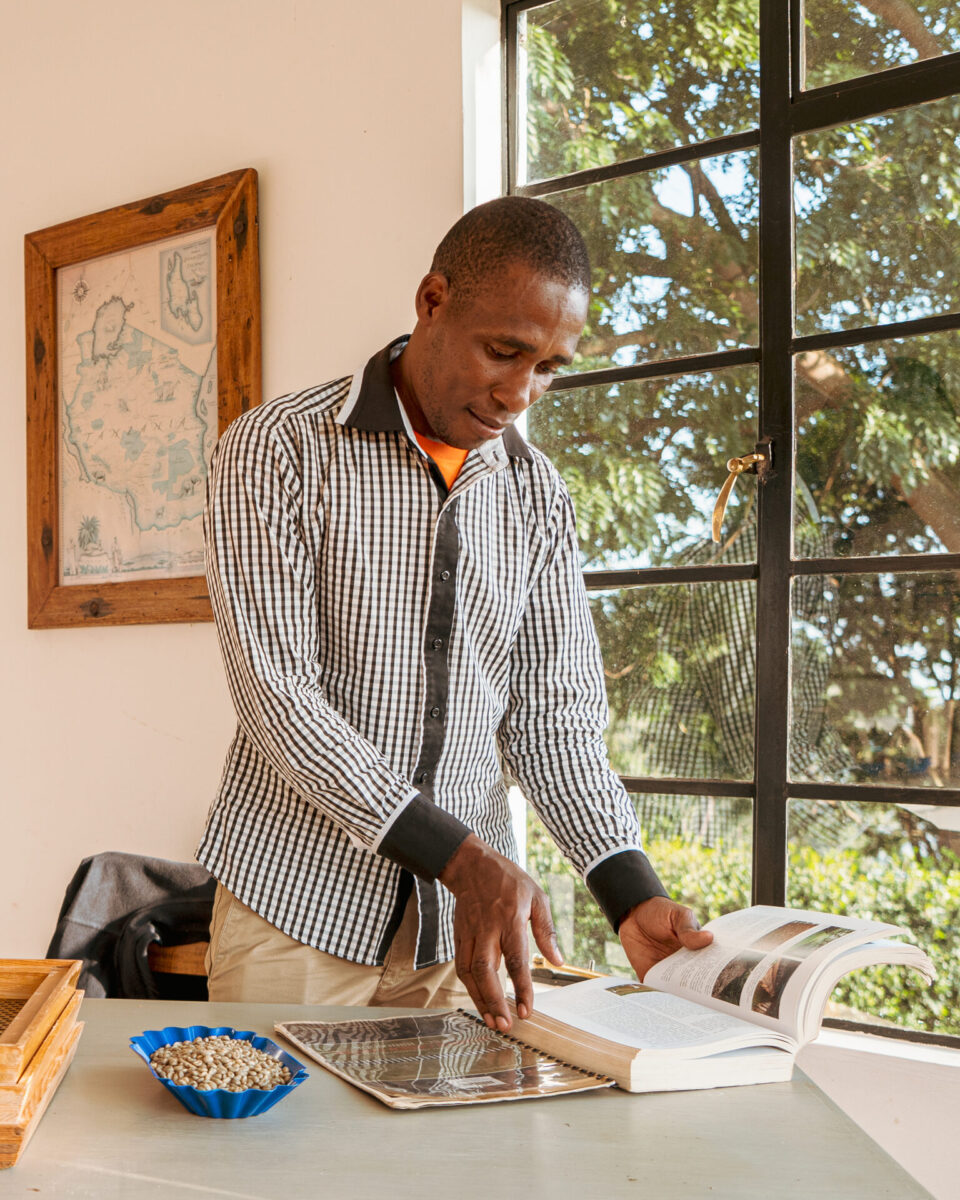
“The reason I’ve stayed with the coffee industry for over ten years is because it’s a perfect fit for me. I’ve met people from different countries, cultures, religions, and backgrounds. Coffee has helped broaden my perspective and my way of thinking. There’s only so much time to talk to people, but I always make as much time as possible because I’m curious to learn more about their backgrounds, culture, and their ideas.
Even though I am still a devout Christian, I do enjoy the occasional drink. I know some preachers say you’ll go to hell if you drink alcohol, but I don’t believe that. If the life you live helps make other people happy, then that’s being a true Christian. It really doesn’t matter what religion you believe in. In the end, we are all human. Muslim, Buddhist, whatever your beliefs, we can still enjoy a cup of coffee together. For me, coffee is something that has taught me how to live my life better.”
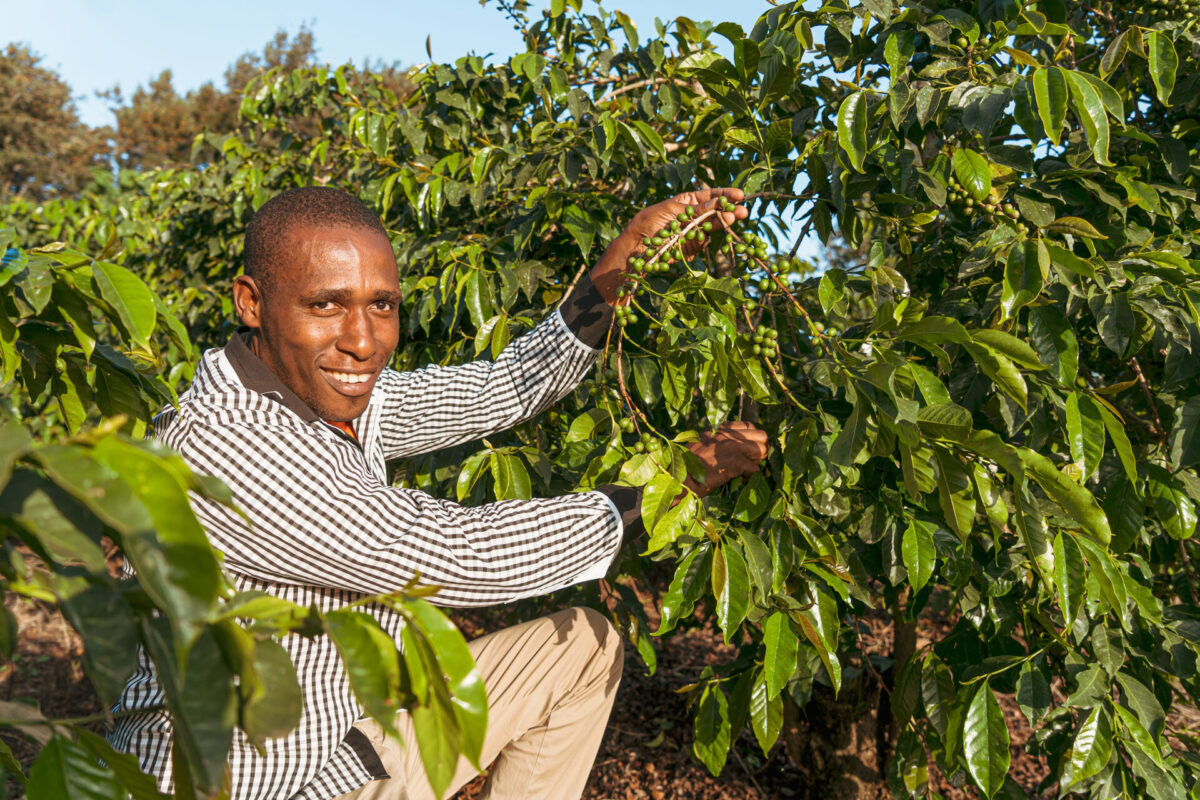
Talking to Filbert, it is clear that the years he spent as a child with his grandparents have influenced the adult he has become. His grandparents had a little farm in Kilimanjaro where they grew coffee, banana, corn, mango, and a wide selection of crops. They would end the work day at around 2 pm and invite the neighbors around for a BBQ. Filbert has happy memories of the adults sitting around in a circle, airing their gripes, and sharing their concerns with the group.
“My grandfather acted as a mediator, stepping in to find a peaceful resolution to disagreements and conflicts. And once the air had cleared, everyone would have a beer, make a toast, and then get up and dance and sing together. It taught me to let bygones be bygones. To move on and forget the past. It’s a valuable lesson that I’ve never forgotten.”
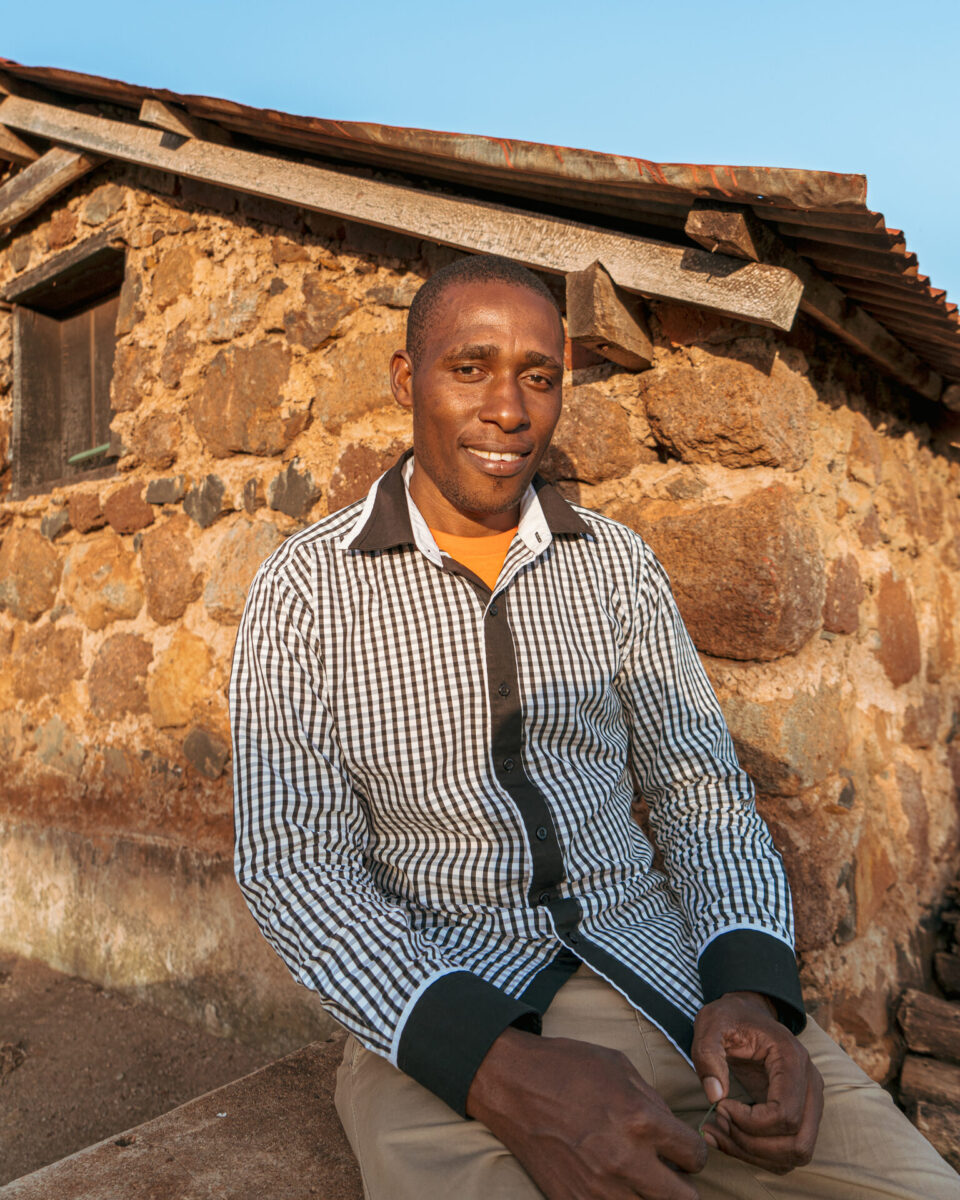
Whether consciously or subconsciously, coffee has become a way for Filbert to make his dream for a peaceful world a reality.
“I plan to keep the connections I’ve made with the coffee farmers I met in my last job, and I’m hoping that with the dry mill project, I’ll be able to connect with even more smallholders. The 2022 version of Filbert is very different to the 2012 version. But I’m not done updating yet. God willing, if I’m still around in 2026, then you’ll get to see yet another, very different, revamped version of Filbert.”
Originally written in Japanese by Tatsuya Nakamichi








